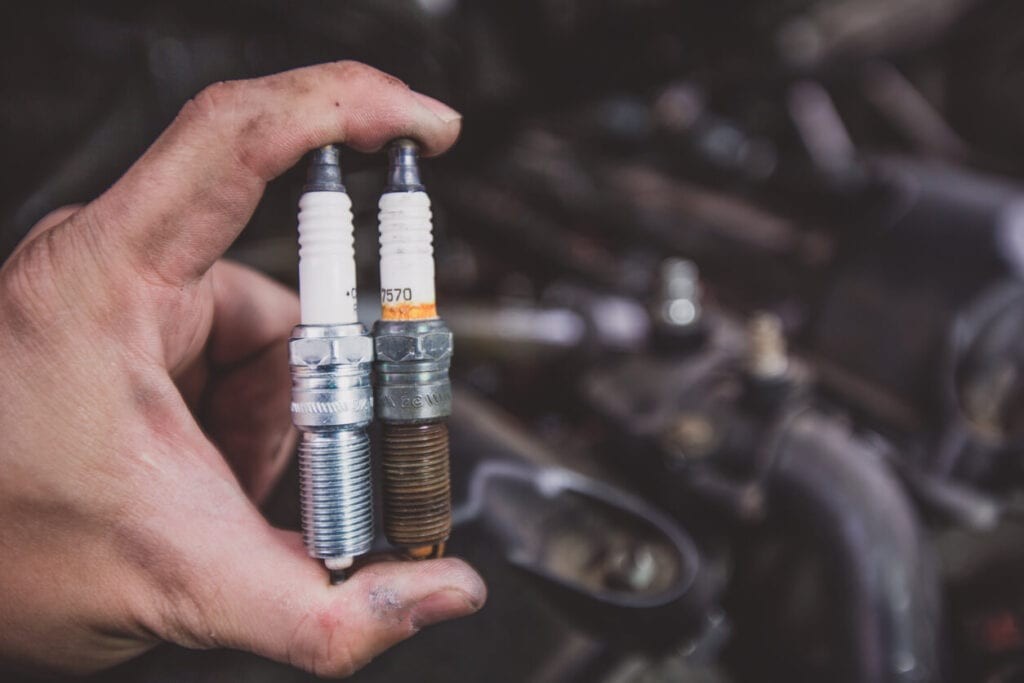A Car Shaking While Idle can be a frustrating and concerning issue. While a slight vibration is normal, excessive shaking indicates a problem that needs attention. This shaking, often described as rough idling, can stem from various issues ranging from minor maintenance needs to more significant engine problems. Understanding the potential causes can help you diagnose the problem and seek the necessary repairs.
Common Causes of Car Shaking While Idle
Several components contribute to a smooth idle, and a malfunction in any of these can lead to shaking. Here are some of the most common culprits:
1. Dirty or Faulty Fuel Injectors
Fuel injectors deliver precise amounts of fuel to the engine cylinders. Over time, carbon deposits can clog these injectors, disrupting the fuel spray pattern and causing an imbalance in the air-fuel mixture. This imbalance leads to incomplete combustion and engine shaking. Cleaning or replacing the fuel injectors can often resolve this issue.
2. Worn Spark Plugs, Wiring, or Ignition Coil
The ignition system, comprised of spark plugs, wiring, and the ignition coil, is responsible for igniting the air-fuel mixture in the cylinders. Worn spark plugs, damaged wiring, or a failing ignition coil can cause misfires, leading to engine shaking and rough idling. Regular spark plug replacement and inspection of the wiring and coil are crucial for preventing this issue.
3. Clogged Air Filter
A clogged air filter restricts airflow to the engine, starving it of the oxygen required for proper combustion. This restricted airflow leads to a rich fuel mixture (too much fuel, not enough air), causing the engine to run rough and shake while idling. Replacing the air filter is a simple yet effective solution.
4. Vacuum Leaks
Vacuum leaks occur when there are cracks or disconnections in the engine’s vacuum hoses. These leaks disrupt the carefully controlled air-fuel mixture, causing rough idling and engine shaking. Identifying and repairing vacuum leaks is essential for restoring smooth engine operation.
5. Faulty Oxygen Sensor
The oxygen sensor monitors the amount of oxygen in the exhaust gases, providing crucial information to the engine control unit (ECU) for adjusting the air-fuel mixture. A malfunctioning oxygen sensor can lead to an incorrect air-fuel ratio, causing rough idling and engine shaking.
6. Worn Motor Mounts
Motor mounts secure the engine to the car’s frame, absorbing vibrations. Worn or damaged motor mounts can allow excessive engine movement, resulting in noticeable shaking, particularly at idle. If the shaking decreases when shifting to neutral, worn motor mounts are a likely cause.
Diagnosing and Addressing the Problem
While these are common causes of car shaking while idle, a professional diagnosis is crucial for pinpointing the exact issue. A qualified mechanic can use diagnostic tools to identify the root cause and recommend the appropriate repairs. In addition to the components mentioned above, they may also inspect:
- Throttle Position Sensor
- Mass Air Flow Sensor
- Idle Air Control Valve
- Engine Coolant Temperature Sensor
- Head Gasket
- Evaporative Emissions Control System
- Throttle Valve
- Fuel Pump
Conclusion
A car shaking while idle shouldn’t be ignored. Addressing the problem promptly can prevent further damage and ensure a smooth and reliable driving experience. Consult a qualified mechanic for diagnosis and repair to resolve the issue and restore your car’s performance.

